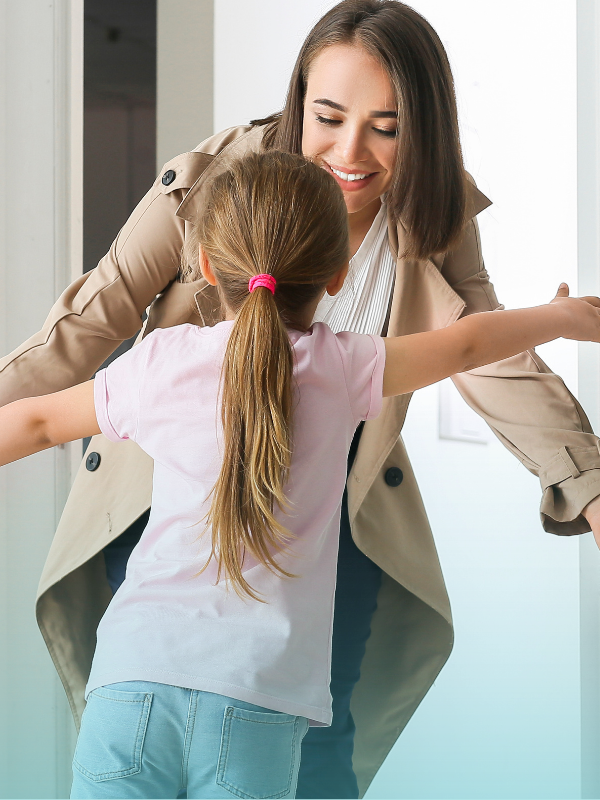If your child comes home feeling off — quiet, anxious, or unusually emotional — it can leave you unsure how to respond. That’s why following mental health first aid steps for parents matters. Like physical first aid, these steps aren’t a substitute for professional care, but they offer a clear, calming way to support your child when it matters most.

The Value of Mental Health First Aid at Home
At Parent Pathways Academy, we believe every parent can learn simple steps to respond when their child is struggling emotionally. These mental health first aid steps for parents are adapted from established best practices in mental health first aid and tailored into a simple, family-focused guide.
They aren’t about replacing professional care. Instead, they equip you with clear, compassionate actions: noticing warning signs, listening with empathy, offering reassurance, and connecting your child with support.
As Dr. Marisa Marraccini, a child and adolescent psychologist, explains: “Parents don’t need to have all the answers. What they do need is a toolkit of supportive steps that help kids feel heard and safe while they figure out the next move together.”
A – ssess Risk and Notice Signs
Start by gently observing changes in your child’s behavior like withdrawal, irritability, or sleep struggles. These can be early signals of stress or anxiety.
Noticing small changes early can make a big difference. For more ideas on how parents can reduce stress at home, see our guide on stress relief tips for overwhelmed parents.
L – isten Without Judgment
When your child speaks, listen with an open heart and mind. Avoid interrupting, rushing in with solutions, or reacting with judgment. Reassure them by simply being present.
It’s also important not to use shame or dismiss your child’s feelings. Avoid phrases like “you’re overreacting” or “you just want attention.”
Children’s emotional struggles are real, and framing them as attention-seeking can shut down communication instead of building trust.
Listening well also means being aware of what might trigger emotions, including online experiences. Explore how screen habits connect to feelings in our post on screen time and emotional health.
G – ive Reassurance & Normalize Feelings
Tell your child you’re there for them and that their feelings are valid and temporary. A calm and compassionate tone can ease their stress immediately.
Daily routines help kids feel grounded and secure. Parents can build this kind of reassurance into everyday life with ideas from our piece on summer routines for kids.
E – ngage in Professional or Peer Support
Guide them gently toward help whether that’s speaking to a trusted teacher, counselor, or a mental health pro. Research shows that early support helps kids build long-term resilience.
Professional help matters, but so does modeling stability at home. You can build that foundation with small, consistent steps from our blog on how to parent with confidence every day.
E – ncourage Self-Help & Ongoing Care
Promote small wellness habits — like journaling, talking walks, or peer support — that help maintain emotional balance over time.
Encouraging self-help isn’t just about journaling or exercise — it’s also about digital balance. Try our guide on healthy tech habits tweens can stick to for simple ways to protect emotional wellbeing.
Frequently Asked Questions
Q: What if I don’t have formal training in Mental Health First Aid?
A: That’s okay! The ALGEE steps — Assess, Listen, Reassure, Engage, Encourage self-help — are simple, research-backed, and can be practiced right away at home.
Q: How do I support my teen who refuses to open up?
A: Start with gentle check-ins — like sharing a walk or quiet activity — so you’re around without pressure. Let them know you’re available when they’re ready, and keep offering presence, not pressure.
Final Thoughts
These mental health first aid steps for parents help you stay confident and calm when supporting your child emotionally. You’re not alone and often, connection and reassurance matter more than finding the “right” words.
Parent Pathways Academy offers family resources and guided tools to build resilience and lasting well‑being through these moments.
References
Mental Health First Aid. (2019). Four tips for nonjudgmental listening. Retrieved from Mental Health First Aid website.
Mental Health First Aid. (n.d.). What you learn in a Mental Health First Aid course. Retrieved from Mental Health First Aid website.
Mental Health First Aid for Youth. (n.d.). Youth Mental Health First Aid overview. Retrieved from Mental Health First Aid website.
Therapy Trainings. (2025, August). Mental Health First Aid: How to Recognize, Respond, and Support. Retrieved from Therapy Trainings website.
Mental Health First Aid. (2021). ALGEE: The Mental Health First Aid Action Plan. Retrieved from Mental Health First Aid website.
Hyman Consulting Group. (2024). The lifeline for parents: How Youth Mental Health First Aid equips parents. Retrieved from Hyman Consulting Group website.
Verywell Mind. (2022). Parents need support in talking mental health with kids. Retrieved from Verywell Mind website.

